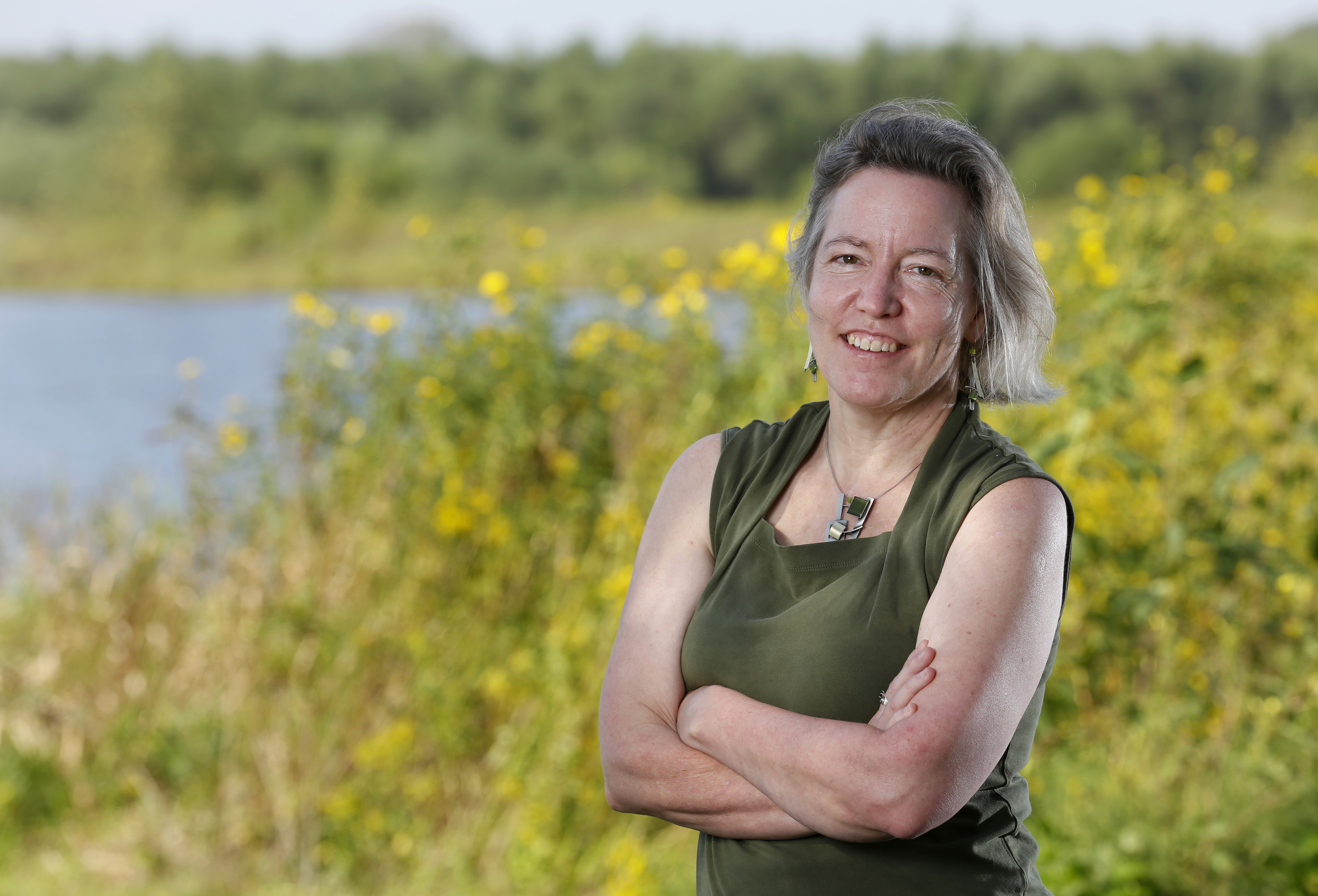
Carving a Path to the National Academy of Science
Cathy Kling’s passion for environmental issues has been engrained since she was a Girl Scout camping, hiking and enjoying the outdoors. But, her early exposure to economics didn’t go quite as well.
“There was an economics class in my high school. The teacher thought it was really funny on the first day to tease all the girls in the class and tell them ‘you came to the wrong place, this is economics, not home ec.’ That was perfectly acceptable at the time. In retrospect, it makes me realize that we’ve come a long way,” she laughs.
Kling, director of the Center for Agricultural and Rural Development, decided to give economics another try. She earned a degree in business from the University of Iowa and a doctorate in environmental economics at the University of Maryland. She joined the Iowa State faculty as an associate professor in 1993.
Since then she’s contributed greatly to the advancement of natural resource and environmental economics. Kling is known for conducting innovative research throughout her career that melds environmental science with classical economics.
She pioneered research on integrated water quality and economic models to help guide the design and implementation of conservation policies in the Midwest.
The methods she developed to evaluate how people value environmental amenities and how they support environmental improvements led to the Iowa Lakes
Valuation Project. The long-running survey of Iowans about the use of Iowa lakes has informed both citizens and policymakers about the value of the state’s water resources.
Kling’s expertise has garnered her several accolades, but in the last two years she has received two awards that have placed her with elite company. She was elected to the National Academy of Sciences (NAS) in April of 2014 and recognized as a Charles F. Curtiss Distinguished Professor in Agriculture and Life Sciences at Iowa State the year prior.
“It’s with great pride that I learned of Dr. Kling’s election to the National Academy of Sciences,” says Iowa State University President Steven Leath. “Dr. Kling joins some of the most distinguished scientists in the history of this institution as a member of the academy.”
About 80 scientists are elected to the National Academy of Sciences every year.
Kling is only the 11th Iowa State University professor in the university’s history to be elected and the first woman.
The National Academy of Sciences is a private, nonprofit institution that was established under a congressional charter signed by President Abraham Lincoln in
- It recognizes achievement in science by election to membership, and—with the National Academy of Engineering,
Institute of Medicine, and National Research Council—provides science, technology and health policy advice to the federal government and other organizations. The honor includes being able to sign the “Great Book” which contains signatures of every past scientist elected to the academy. And, her name is engraved alongside her fellow Iowa State academy members on the first floor of Beardshear Hall on the Iowa State University campus.
“Getting the Charles F. Curtiss award was fantastic. I was flying high from that, and then being elected to the NAS was better than anything I could have imagined,” she says.
Though she was already well-known amongst her peers, she says the awards have furthered her visibility. “It’s clear to me that both of those things have put my name out there—I’m getting more and more requests to do projects,” she says.
“When I first started doing this work and learning about the Gulf hypoxia in the late 1990s, very few people even knew about the problem or what hypoxia was,” she says. “If I would mention it during a talk I would often get a blank look from a lot of people. Now, however, it’s on the radar for most people that know something about agriculture.”
Her work focusing on large-scale problems, like oxygen depletion in the Gulf, have become well known. Before that, however, she started small.
“When I moved here I really wanted to learn about the issues that were relevant to Iowa. Initially, it was only local water quality that had my interest,” she says. “At some point, I became aware of the hypoxia work that was being done in the Gulf.”
Kling then joined a National Science Foundation project with Nancy Rabalais, a marine ecologist tracking the size of the hypoxic zone from year to year. The research group’s efforts have gained national attention and one of their papers was accepted to the Proceedings of the National Academy of Sciences last year.
“I hope that our research has helped the discussion concerning what can be done and where future research may be the most fruitful in identifying solutions. Environmental problems like the hypoxic zone are complex and have taken years to develop—solutions will likewise take a long time to evolve.”
Looking toward the future, Kling says she continues to be interested in studying economic incentives as a means to address water quality issues in agriculture and the valuation of water quality improvements.
“As important as water is to human beings, it’s really quite surprising how little we know about the value we place on water quality in alternative uses.”
As for advice that she would give to the next generation of women looking to enter the field of economics, Kling says, “I hesitate to give advice since everyone’s situation differs so much, but I have had an intellectually rich career, have met many fascinating and thoughtful people, and would certainly choose this path again.”



